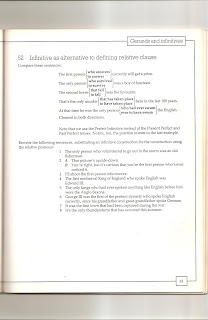...because it will soon be over and we'll be back to the reality of your final marks...
In the meantime, at least it's not so cold here. In the UK there are parts where the temperature has been as low as -19ºC.
terça-feira, 21 de dezembro de 2010
quarta-feira, 15 de dezembro de 2010
Harvard Referencing System
if it's a book:
Bloggs, F. (1980) How to write your name, Cambridge University Press
if it's an article in a review:
Bloggs, F. (2005) Complex sentences, Higher Education Review, 41, 305-357
if the main name is only the organiser:
Bloggs, F. (ed.) (2009) Complicated Grammar Exercises, Cambridge University Press
if it's on a website:
Office of National Statistics (2005) Social Trends www.statistics.gov.uk (correct on 12/12/2005)
Bloggs, F. (1980) How to write your name, Cambridge University Press
if it's an article in a review:
Bloggs, F. (2005) Complex sentences, Higher Education Review, 41, 305-357
if the main name is only the organiser:
Bloggs, F. (ed.) (2009) Complicated Grammar Exercises, Cambridge University Press
if it's on a website:
Office of National Statistics (2005) Social Trends www.statistics.gov.uk (correct on 12/12/2005)
segunda-feira, 6 de dezembro de 2010
the problem of prepositions, infinitives and gerunds
This is an issue which a lot of colleagues seem to have had trouble with during the test, so here is an eight-page handout on everything you need to know about the subject.
The basic rule is easy to follow:
if the expression is followed by "to", then the verb which comes next should be an infinitive;
if the expression is followed by any other preposition, then the verb which comes next should be a gerund;
if the expression is not foloowed by any preposition, then the verb which follows should be a gerund.
If in doubt, follow this general rule. However, there are so many exceptions it makes your eyes water. This handout covers all of the most common ones. Enjoy!
The basic rule is easy to follow:
if the expression is followed by "to", then the verb which comes next should be an infinitive;
if the expression is followed by any other preposition, then the verb which comes next should be a gerund;
if the expression is not foloowed by any preposition, then the verb which follows should be a gerund.
If in doubt, follow this general rule. However, there are so many exceptions it makes your eyes water. This handout covers all of the most common ones. Enjoy!
Subscrever:
Comentários (Atom)







